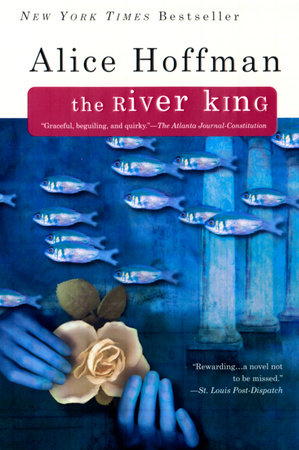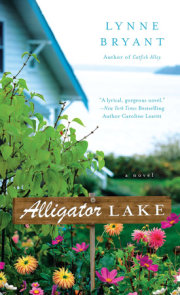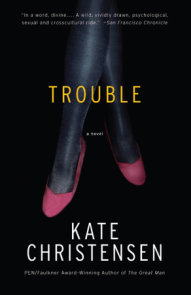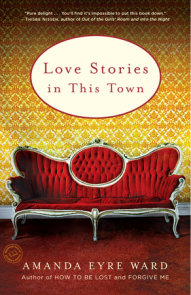READERS GUIDE
Questions and Topics for Discussion
INTRODUCTION
The River King is a novel as compelling as it is daring, an exploration of forgiveness and hope, a wondrous tale of innocence and evil, and of the secrets we keep.
For more than a century, the small town of Haddan, Massachusetts, has been divided, as if by a line drawn down the center of Main Street, separating those born and bred in the village from those who attend the prestigious Haddan School. But one October night the two worlds are thrust together due to an inexplicable death, and the town’s divided history is revealed in all its complexity. The lives of everyone involved are unraveled: from Carlin Leander, the fifteen-year-old girl who is as loyal as she is proud, to Betsy Chase, a woman running from her own destiny; from August Pierce, a boy who unexpectedly finds courage in his darkest hour, to Abel Grey, the police officer who refuses to let unspeakable actions—both past and present—slide by without notice.
ABOUT ALICE HOFFMANAlice Hoffman’s novels include Property Of, The Drowning Season, Angel Landing, White Horses, Fortune’s Daughter, Illumination Night, At Risk, Seventh Heaven, Turtle Moon, Second Nature, Practical Magic, Here on Earth and Local Girls. She lives outside Boston.
Praise
“Spellbinding. Hoffman opens old wounds and inflicts new ones in this evocative mystery of innocence transgressed and evil expelled.”—USA Today
“Alice Hoffman is, was, and always will be, a beautiful writer.”—The Washington Post Book World
DISCUSSION QUESTIONSHoffman dedicates much of the novel to describing The Haddan School campus in detail. In what ways do the School’s physical descriptions mirror actual events in the novel? Is Hoffman’s description of the Chalk House foreboding for its inhabitants?
The line between past and present, living and dead, is often blurred in the story, creating a mystical, haunting atmosphere in which anything seems possible. How does Annie Howe “live on” at the Haddan School? What mystical or supernatural qualities did Annie Howe display while she was alive? Are there any ghosts in the novel, and if so, how do these ghosts from the past inform the state of things in the present?
How are Carlin Leander and August Pierce different from the other students at the Haddan School? What does each do in an effort to mask that difference? Do they succeed in this effort?
Almost every major character Carlin Leander, Abel Grey, Betsy Chase, Dr. Howe is forced at some point to deal with the death of someone close to them in The River King. Carlin believes she is still in contact with Gus Pierce after his death, while Abel Grey cannot even talk of his brother’s suicide at an early age. Which do you believe is the best way to deal with such loss? In your opinion, does Gus Pierce actually visit Carlin after his death and leave her gifts, or is there another explanation for this? What was your reaction when Gus Pierce “appears” in a photograph taken after his death?
Throughout The River King, Abel Grey and Betsy Chase undergo significant character changes, both internally and externally. Discuss.
Thanks to the deceitful actions of Abel Grey, Harry McKenna gets expelled from The Haddan School and loses his admission into Dartmouth, despite the fact that he didn’t actually cheat on his exam. Is this fair? Does Harry McKenna deserve a more severe punishment for his role in Gus Pierce’s death?
Haddan is divided between the haves and the have-nots or, the Haddan School students and the Haddan town residents. In what ways does the symbolic distance between the two become greater over the course of the novel? In what ways does this distance become shorter?
Both Abe and Carlin Leander feel guilty for the death of someone close to them—in Abe’s case, his brother Frank, and in Carlin’s case, Gus Pierce. In what other ways are the two characters alike, especially by the end of the novel?
What effect does the revelation about Abe’s true grandparents have on Abe? Does it help explain anything about his personality? Why might Abe be aptly dubbed “The River King”?
Death imagery abounds in the second half of the novel. The last paragraph, however, contains a more hopeful image of Carlin swimming in the river one late afternoon. This parting sequence provides a positive contrast to the mostly dark images found up to that point: “the fish had grown used to her, and they swam along beside her, all the way home.” Does this suggest the possibility of a brighter future for Carlin after the tragedy of Gus’s death? Why do you think Carlin decides to swim in the river every day? Why, in your opinion, does Gus stop “visiting” her?






















